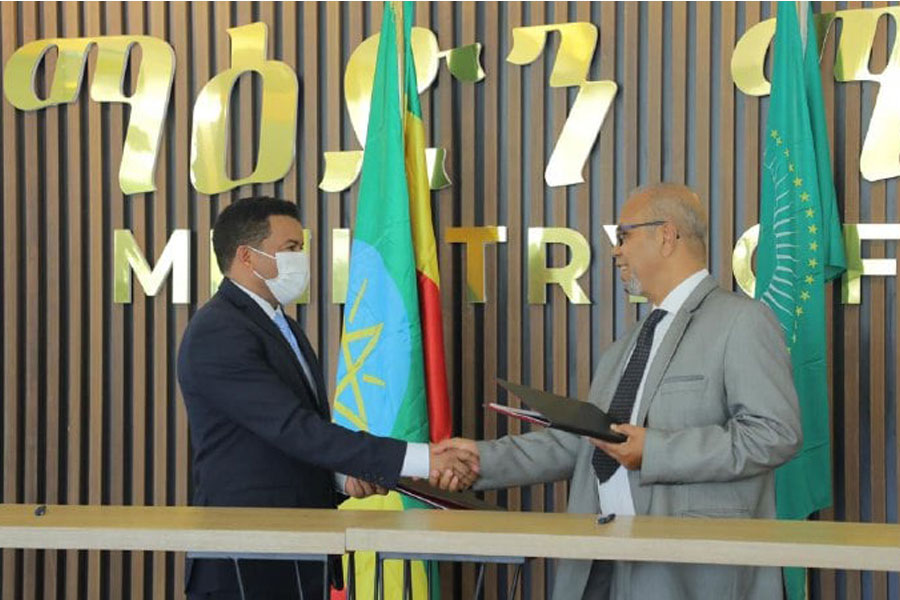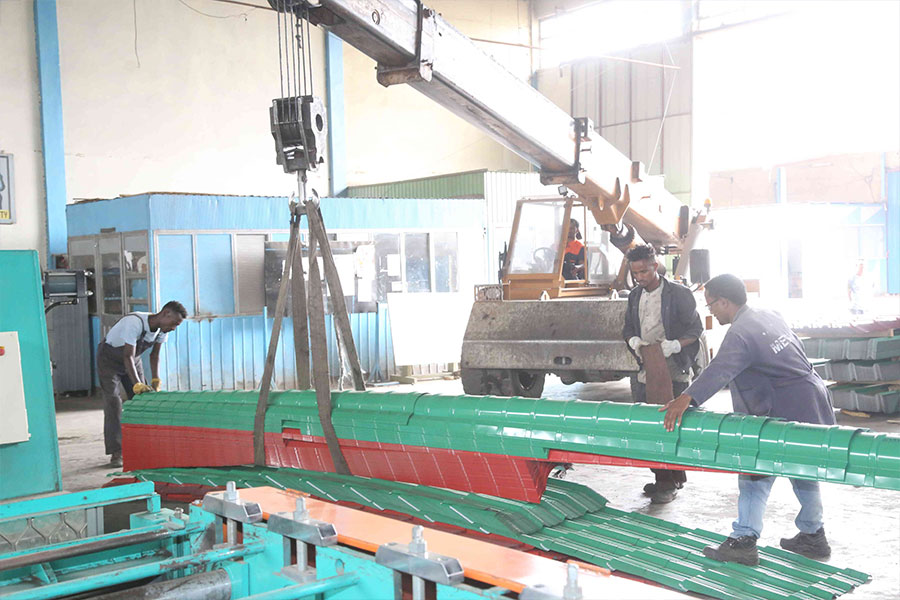
Viewpoints | May 01,2020
Sep 10 , 2022
By TSION HAILEMICHAEL ( FORTUNE STAFF WRITER )
Metal product manufacturers are to receive much-needed raw materials in scrap metal from a federal agency regulating prices in the industry.
Highly dependent on imports, metal industries struggle to get inputs such as billet due to the shortage of foreign currency. Officials hope that over 1,000tns of scrap metal available to six manufacturers will ease the challenges. Steel manufacturers buy scrap metal at prices determined by the Metals Industry Development Institute. A kilogramme of steel costs them 29 Br while cast iron is traded at 21 Br.
The Institute facilitates the supply of scrap metal based on the factories’ production capacity. Scrap is primarily used for the manufacture of reinforcement bars. Vehicles that have sustained severe damage and cars that have served longer than 40 years are disposed off as scrap.
An assessment conducted by the Public Procurement & Property Disposal Service reveals that nearly 10,000 vehicles under the possession of federal government agencies and public universities can be used as scrap metal by the factories. The Service has made 2,600tns of scrap metal available to industries.
However, the amount was a drop in the bucket compared with the annual raw materials demand estimated at 12 million tonnes of billet, slab, bloom, and sponge iron. The 410 factories, employing over 126,000 people, have a combined annual production capacity of 11 million tonnes of steel.
“We’ve informed the factories to collect the scrap metal,” said Senait Menbere, director of mining development at the Ministry of Mines.
Steel manufacturers such as Rose Ethiopia Iron & Steel, Nazachez Steel, Steely, Tadash Steel and Dire Steel Plc are the beneficiaries of this offer.
Incorporated a decade ago with 400 million Br capital, Dire Steel Plc will have access to scrap metal to boost its sluggish operations. It can produce 360,000tns of rebar and wire rods annually, but it only uses three percent of its capacity, Sewnet Abeje, advisor to the chief executive officer (CEO), disclosed.
“We’ve been told to collect the scrap from Dire Dawa University,” Sewnet confirmed.
Dire depends entirely on billet, which the company used to import from China, Ukraine and India in the past. A lack of forex has become a major impediment to production. Its executives say the forex crunch also hampers the government scrap allowance as the factory lacks a metal melting furnace needed to use the scrap metal. The management is considering using a furnace in a nearby factory, according to Sewnet.
The manufacturer is awaiting access to forex from a commercial bank to import a furnace from China, costing five million dollars.
“We hope it’ll happen in the next three weeks,” he said.
Only 21 manufacturers have metal melting furnaces.
This includes YESU Plc, one of the few industrial-scale plants that produce iron and steel products. Incorporated in 1998, the company has four furnaces with the capacity to melt 25tns of metal. However, the scrap metal the company supplies is hardly enough to satisfy even a quarter of demand, says Esayas Teklu, CEO, whose plant is in Gelan town, 35km southeast of Addis Abeba.
YESU can produce a quarter of a million tonnes of metal products annually, including galvanised steel sheets. It requires 330,000tns of raw materials to operate at full capacity. It operates with less than a 10th of the potential, Esayas disclosed.
The lack of raw materials has pulled the average capacity of metal industries below 30pc and forced over 20 factories to shut down in recent years.
For Solomon Mulugeta, president of the Ethiopian Association of Basic Metals & Engineering Industries, an industry lobby group representing 75 manufacturers, the federal government’s measure is better than doing nothing.
“Although insufficient, the supply of scrap metal can provide a semblance of relief for factories,” he told Fortune.
To reverse the downward spiral brought on by raw material shortages, Ministry of Mines officials plan to establish an iron ore mining industry with a production capacity of 2.5 million tonnes of billet, bloom, and slabs annually. It is projected to cost four billion dollars. If their plan materialises, the iron ore mining industry can substitute over a quarter of the raw material needs of steel manufacturers.
Two weeks ago, the Ministry floated a bid to attract firms to conduct detailed feasibility studies to establish an iron and steel plant.
PUBLISHED ON
Sep 10,2022 [ VOL
23 , NO
1167]

Viewpoints | May 01,2020

Fortune News | Jul 30,2022

Fortune News | Jan 15,2022

Agenda | Jun 18,2022

Radar | Jan 19,2024

Fortune News | Jun 24,2023

Fortune News | Mar 06,2021

Radar | Dec 05,2018

Fortune News | Sep 27,2020

Editorial | Apr 15,2023

Dec 22 , 2024 . By TIZITA SHEWAFERAW
Charged with transforming colossal state-owned enterprises into modern and competitiv...

Aug 18 , 2024 . By AKSAH ITALO
Although predictable Yonas Zerihun's job in the ride-hailing service is not immune to...

Jul 28 , 2024 . By TIZITA SHEWAFERAW
Unhabitual, perhaps too many, Samuel Gebreyohannes, 38, used to occasionally enjoy a couple of beers at breakfast. However, he recently swit...

Jul 13 , 2024 . By AKSAH ITALO
Investors who rely on tractors, trucks, and field vehicles for commuting, transporting commodities, and f...

Jul 5 , 2025
Six years ago, Ethiopia was the darling of international liberal commentators. A year...

Jun 28 , 2025
Meseret Damtie, the assertive auditor general, has never been shy about naming names...

Jun 21 , 2025
A well-worn adage says, “Budget is not destiny, but it is direction.” Examining t...

Jun 14 , 2025
Yet again, the Horn of Africa is bracing for trouble. A region already frayed by wars...